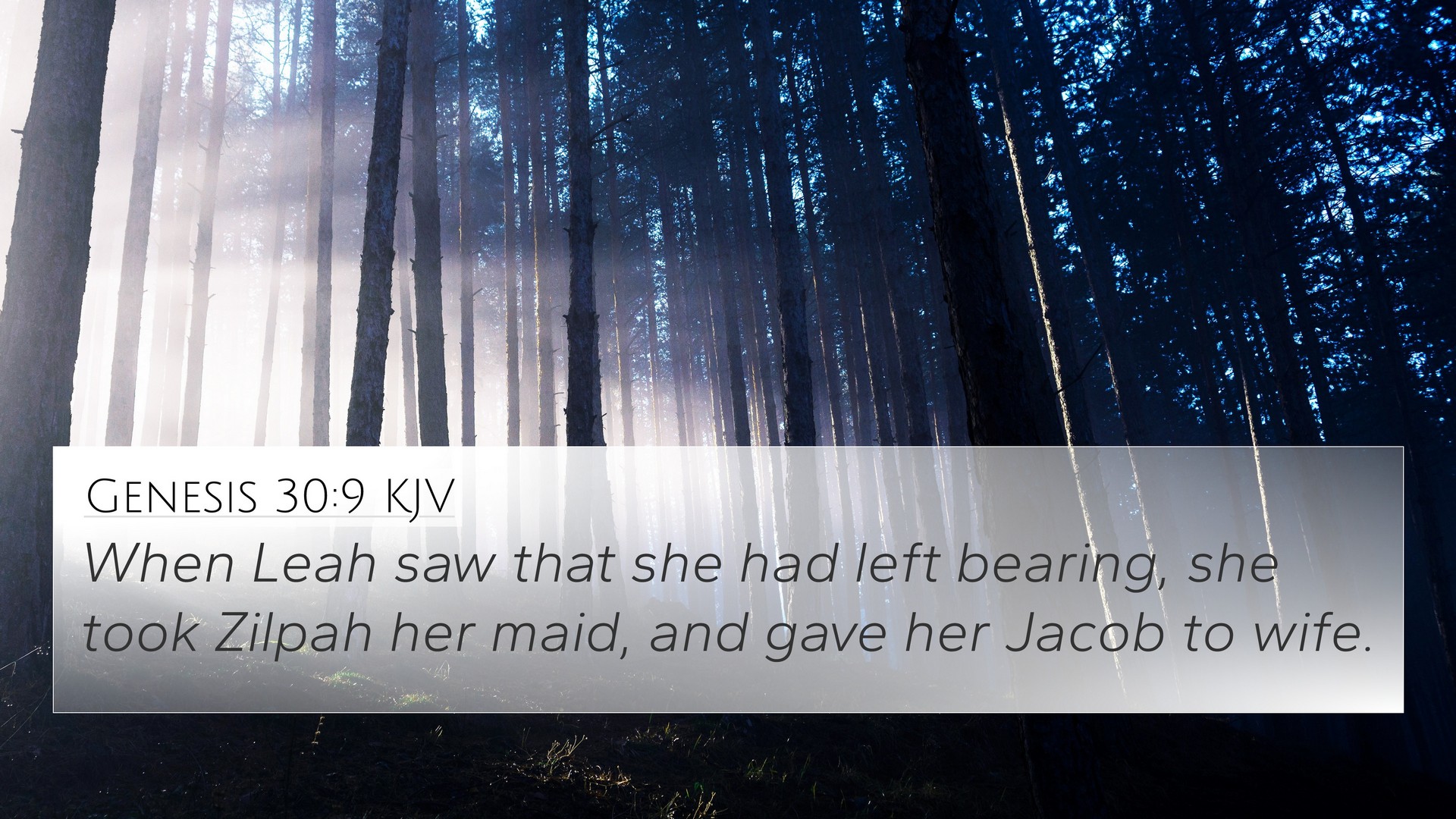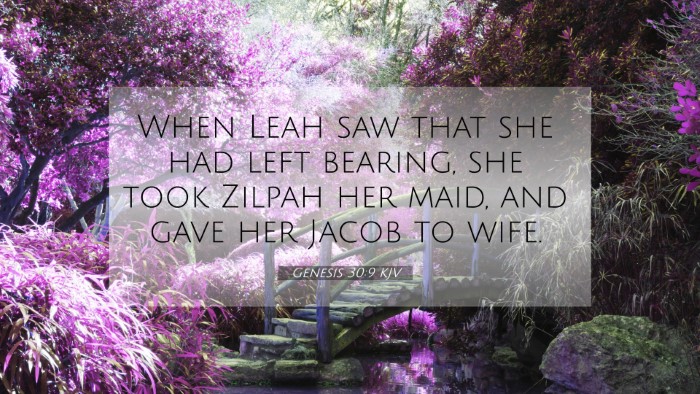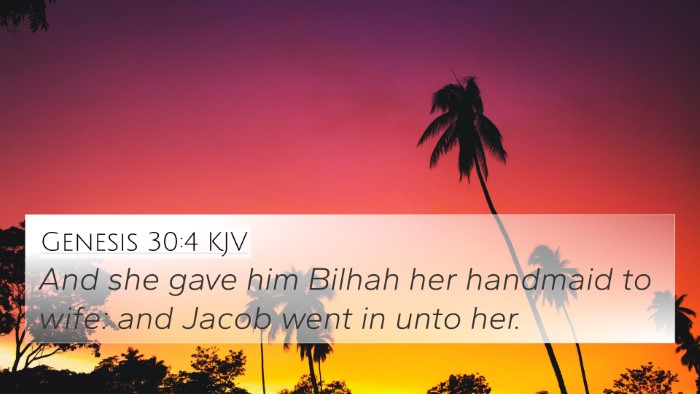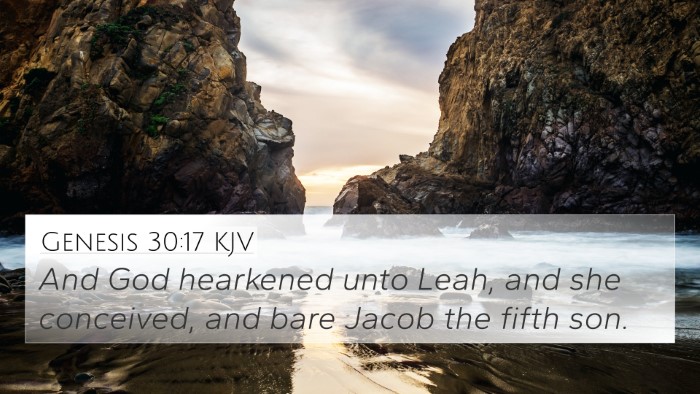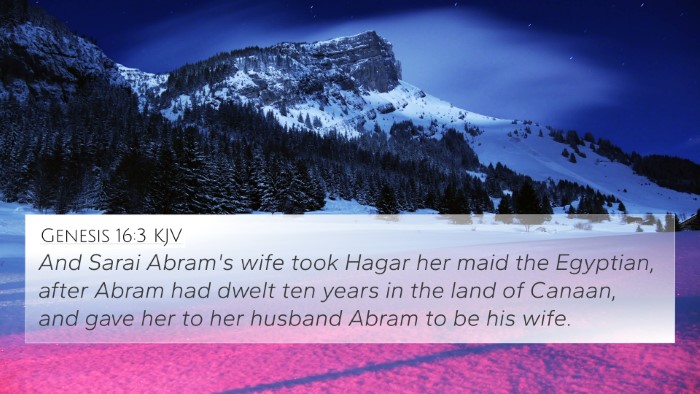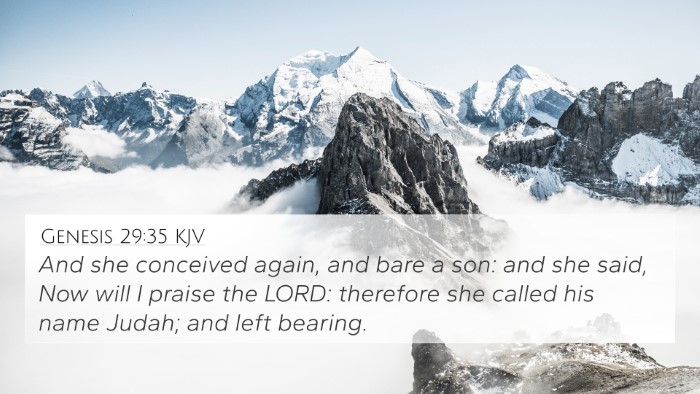Understanding Genesis 30:9
Bible Verse: Genesis 30:9 - "When Leah saw that she had stopped bearing, she took her maid Zilpah and gave her to Jacob as a wife."
Summary and Meaning
The verse presents a significant moment in the narrative of Jacob's family, illustrating the continuing competition between Leah and Rachel for Jacob's affection. Leah's decision to give her maid, Zilpah, to Jacob reflects cultural practices of the time where women who could not produce offspring sought to expand their families through their servants.
Commentary Insights
- Matthew Henry: Henry emphasizes that Leah's desire for more children led her to act out of desperation. He notes that this behavior exemplifies how the lack of faith and reliance on God can lead one to make misguided decisions.
- Albert Barnes: Barnes points out the implications of Leah’s actions concerning family dynamics. He suggests that Leah’s competition with Rachel manifested not only in childbearing but also in seeking validation through her husband’s affections.
- Adam Clarke: Clarke provides a cultural context, explaining how polygamy was a common practice among ancient peoples as a solution to barrenness. He reflects on the moral implications and the strife that ensued from these family dynamics.
Cross-References and Thematic Connections
- Genesis 16:2: This verse discusses Sarai giving Hagar to Abram as a solution to her barrenness.
- Genesis 29:31: This verse highlights God's intervention in Leah’s life, as He saw that she was unloved and opened her womb.
- Genesis 30:1: Rachel’s desperation for children leads to her offering her maid Bilhah to Jacob, mirroring Leah’s actions.
- 1 Samuel 1:2, 5: Hannah’s struggle with barrenness further illustrates similar themes of desperation and family dynamics.
- Galatians 4:22-24: This passage presents an allegorical interpretation of the story of Sarah and Hagar, drawing parallels between Old Testament narratives.
- Luke 1:36: The mention of Elizabeth, who was also barren, reinforces the biblical theme of God’s miraculous intervention in times of despair.
- Romans 9:9: A reference to the faith of Sarah and the importance of divine promise over human action, relevant to Leah's struggle.
- Matthew 1:2-3: The lineage of Christ includes Judah, Leah’s fourth son, highlighting how God’s plans often unfold through complicated family situations.
- 1 Timothy 2:12: It raises discussions on women’s roles in society and faith communities, connecting with Leah’s narrative of seeking identity through motherhood.
- James 4:1-3: This passage addresses desires that lead to conflicts, echoing Leah’s and Rachel's rivalry.
Applying The Insights
The themes in Genesis 30:9 remind us of the complexities of human emotions, relationships, and the cultural contexts that shape our actions. The narratives displayed in this chapter serve as a cross-reference bridge, connecting numerous other scriptures that deal with the issues of competition, maternal desire, and the quest for identity.
Studying these connections offers invaluable insight into the practical implications of these biblical narratives and allows for deeper theological reflection.
Tools for Further Study
- Bible Concordance
- Bible Cross-Reference Guide
- Comprehensive Bible Cross-Reference Materials
- Cross-Referencing Bible Study Methods
Conclusion
Genesis 30:9 and its surrounding verses provide a profound exploration of the human condition and God's redemptive work throughout history. By engaging with these themes through scriptural cross-referencing, readers can develop a holistic understanding of biblical teachings and their relevance to contemporary life.
